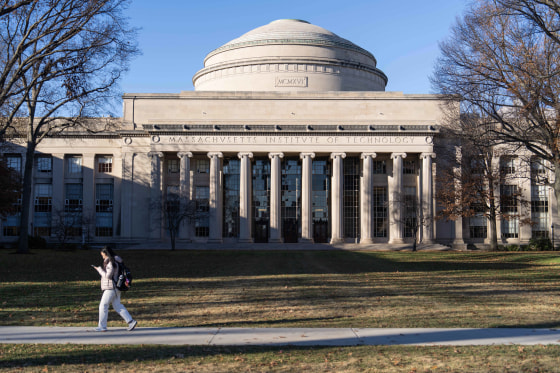Enrollment for Black and Latino students dropped at the Massachusetts Institute of Technology in the first class formed after the Supreme Court found race-conscious admissions in colleges unconstitutional.
The university’s admissions department on Wednesday released its first-year class profile, showing a sharp drop in its Black student population. About 5% of MIT’s incoming class of 2028 is Black, a significant drop from its 13% average in recent years. Latino students make up 11% of the class of 2028, compared to a 15% average in recent years. Overall, 1,102 students make up the incoming class.
Stu Schmill, MIT’s dean of admissions, attributed the drop to the high court’s 2023 decision to end consideration of race in the admissions process.
“We expected that this would result in fewer students from historically underrepresented racial and ethnic groups enrolling at MIT,” Schmill said of the ruling. “That’s what has happened.”
The white and Asian American student populations have increased, while all other groups have declined — some even down to zero, the profile shows.
In recent years, Black, Latino, Native American and Pacific Islander students have accounted for 25% of MIT’s enrolling undergraduate classes, the university said. That number has declined to about 16% for the incoming class of 2028. The profile marks the first time a selective university has released its freshman class statistics since the ruling.
The high court’s ruling struck down affirmative action programs at the University of North Carolina and Harvard, with far-reaching consequences for other public universities. The court ruled that the schools’ affirmative action programs violated the Equal Protection Clause of the Constitution and are therefore unlawful.
Although the ruling bars schools from using race as a factor in admissions, prospective students can still share their racial or ethnic backgrounds through application materials, like essays and personal statements, and through their extracurricular activities.
Officials with MIT’s admissions department did not immediately respond to a request for comment from NBC News.
Last year, ahead of the ruling, Schmill predicted the drop in student body diversity in a blog post. The university was among several schools and institutions that submitted an amicus brief to the court in support for race-conscious admissions.
“If the Court rules in a way that constrains how universities may compose their communities, our commitment to the pursuit of diversity that advances MIT’s education will not waver, but our ability to achieve it will change — potentially dramatically,” he wrote then.
In the wake of the decision, MIT said it expanded its recruitment and financial aid initiatives that prioritized low-income students from all backgrounds.
Schmill said that, in accordance with the new law, the university does not consider race in admissions but looks for diversity through “prospective fields of study and areas of research, extracurricular activities and accomplishments, as well as economic, geographic, and educational background.”
For more from NBC BLK, sign up for our weekly newsletter.

